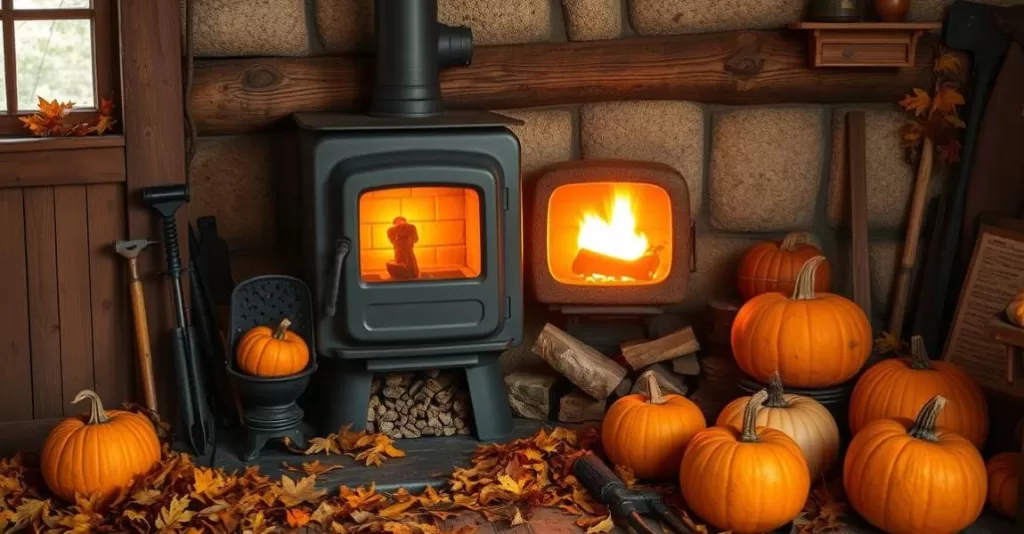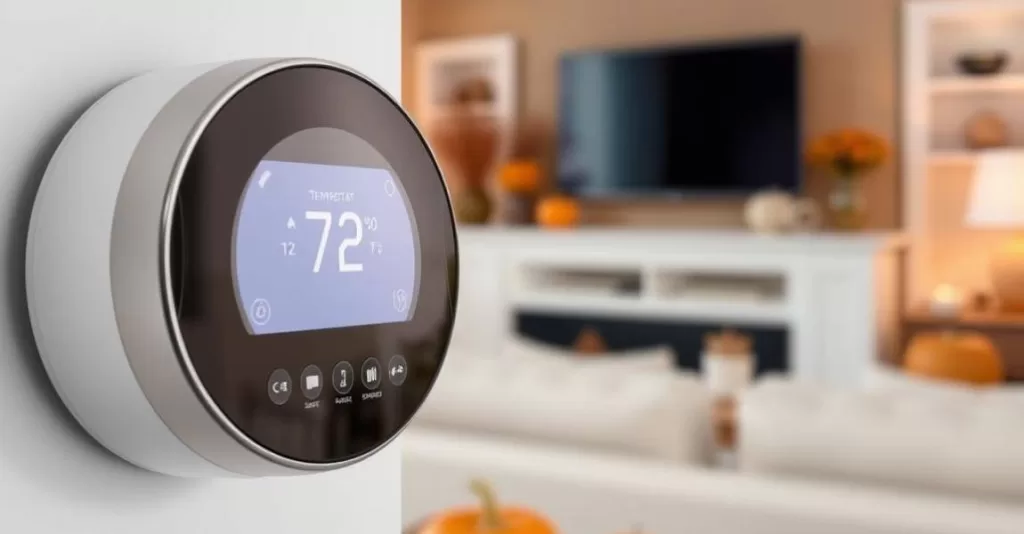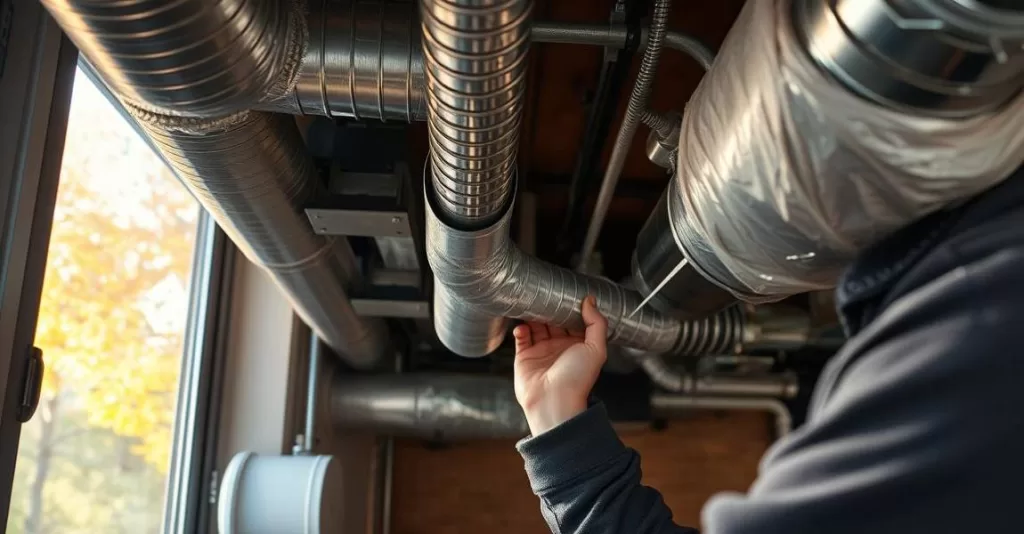Did you know getting your furnace checked yearly is advised by HVAC equipment manufacturers? That’s to avoid costly furnace repairs when it’s cold outside. Skipping this can cause your bills to rise and repairs to become more common. As winter nears in Denver, Colorado, making sure your furnace is ready is vital. Doing this makes it last longer and may also be needed by your insurance. These Furnace Maintenance Tune-Up tips will help you get your furnace ready for fall. Keep reading to learn more about furnace maintenance in Denver!

Key Takeaways
- Furnace Maintenance tune-ups are essential once a year for efficiency and reliability.
- Regular maintenance and furnace cleaning satisfies many manufacturers’ warranty conditions.
- Filters should be checked or changed monthly during the winter months.
- Common maintenance includes cleaning the flame sensing rod and checking for gas leaks.
- Schedule your furnace tune-up in early fall to ensure optimal performance.
- Neglected furnaces can lead to higher energy costs and frequent breakdowns.
Table of Contents
Understanding the Importance of Fall Furnace Maintenance Tune-Ups
With winter around the corner in Denver, it’s wise to focus on your furnace maintenance. Doing so in the fall can reduce heating costs by up to 20%. It not only saves money but can also double the life of your furnace by 50% or more.
Safety should always come first. Skipping it can cause harmful issues, like carbon monoxide leaks. Scheduled professional maintenance helps avoid unexpected problems and keeps your home secure.
If you ignore your furnace, it might not last long. A well-cared-for unit can serve you for 12 to 20 years. On the other hand, lack of care could reduce its life to under 10 years. Up to 50% of winter energy bills come from heating. Improving efficiency by 25% can lower these costs. This ensures your house stays warm without breaking the bank.
An annual furnace check-up also improves the air you breathe, removing dust, pollen, and pet dander. Plus, keeping up with maintenance can protect your warranty, which is crucial for homeowners.
To prepare your furnace for winter, contact us at JD’s Plumbing at 720-783-4879. They’ll ensure your system is ready for the cold season ahead.
Recognizing Signs That Your Furnace Needs a Tune-Up
A furnace is crucial for warmth in the cold months. It’s key to know when it needs a tune-up. You might hear odd sounds, feel uneven heat, or see your energy bills increase. Not paying attention to these signs can cause issues like poor circulation or a total breakdown.
Fall Furnace Maintenance Steps For Homeowners
Check this furnace checklist to keep warm smoothly during fall and winter. Regular care boosts its work and can make it last longer. Here are key steps you should remember:
- Inspect the pilot light; it should burn blue.
- Check for any unusual sounds or smells; these could indicate issues.
- Change the air filter regularly to improve indoor air quality.
- Ensure that the thermostat settings are accurate.
- Look for leaks around the furnace and vents.
- Schedule professional inspections for comprehensive checks.
- Monitor for long cycles or cold spots in your home.
- Address any carbon-monoxide alarms promptly.
PRO TIP: What Does Furnace Maintenance in Denver Include?
Recognizing signs your furnace needs maintenance and using a furnace checklist prevents expensive fixes and helps your heater run well all season. For a detailed check-up, contact experts like JD’s Plumbing, Heating, and Air Conditioning at 720-783-4879.
Replace and Clean the Air Filter
Keeping them clean is key for your furnace to work well. A dirty filter can make airflow poor and raise your energy bills. Changing or cleaning them regularly improves air circulating and cleans the air in your house, making your home feel better in the cold months.
Choosing the Right Filter
Choosing an excellent filter can help your furnace run better. Look for one that catches small things like dust and allergens, keeping the air healthy. Filters with a MERV rating of 8 or more are often high-efficiency. Pick one that cleans the air well but also lets air through easily, making sure your furnace works well.
Frequency of Filter Replacement
You should change or clean them every month when it’s cold. This keeps dirt and debris from blocking and slowing airflow. Keeping up with changing your filter makes your furnace last longer. It keeps the air in your house clean. Plus, you’ll save money on your bills.
Check Thermostat Settings for Optimal Performance
Proper thermostat settings are essential for energy savings and comfort. It is wise to keep it above 70 degrees Fahrenheit in the cold months. Lowering it when you’re not home or sleeping saves energy. This helps your pocket and the planet.
Upgrading to a programmable thermostat is a smart move. It lets you set schedules to boost efficiency. The device adjusts temperatures, keeping your home warm without wasting electricity.
Correct the settings to improve your HVAC’s performance. If it’s not set right, your HVAC may be off. Getting it tuned up and calibrated helps it read temperatures precisely. This avoids energy waste and system overwork.
PRO TIP: “Regular maintenance of your thermostat not only improves comfort but also extends the lifespan of your furnace.”
Be careful where you place your thermostat. Keep it away from heat, drafts, and sunlight to get accurate readings. This ensures your HVAC works well, keeping your home cozy and efficient.
| Features | Benefit |
|---|---|
| Energy Saving Mode | Reduces energy consumption when not at home. |
| Calibration | Ensures accurate temperature readings to improve comfort. |
| Smart Scheduling | Optimizes energy usage based on your schedule. |
| Remote Access | Control your home’s HVAC from anywhere, anytime. |

Inspect and Clean Air Vents
Keeping air vents clean is key to your home’s comfort and efficiency. Dust and debris build-up can block airflow, making your unit less efficient. If the air in your home starts to degrade, it’s time for a check-up. Keeping them clean guarantees your HVAC system works well. This helps air flow better all around your home.
Why Clean Air Vents Matter
When air vents are dirty, airflow is restricted. This makes your furnace work harder. As a result, you might see higher energy bills and feel less comfortable. Blocked vents cause uneven heating and poor indoor air quality. Cleaning them regularly helps keep air circulation strong and your furnace running smoothly. This is especially important in winter.
How to Clear Blocked Vents
Here are some easy steps to keep your air vents open and working well:
- Turn off your heating system to prevent any accidents while cleaning.
- Remove the covers and clean them using a damp cloth or a vacuum.
- Use a vacuum attachment to remove dust and debris from the duct openings.
- Make sure no furniture or curtains are blocking them
- Put the covers back on tightly.
By doing this, you’ll see better airflow and more efficient heating. Regular care prevents big problems in your HVAC system. This means your equipment will last longer.
| Benefit | Description |
|---|---|
| Improved Circluation | Cleaning them allows for better circulation and distribution of warm air. |
| Better Indoor Air Quality | Reduces dust and allergens, promoting a healthier living space. |
| Enhanced Heating Efficiency | Increases the performance of your furnace, potentially lowering energy bills. |
| Prevention of Breakdowns | Routine checks minimize the risk of unexpected repairs and prolong system life. |
Seal Ductwork for Improved Efficiency
Sealing ductwork helps your HVAC system work better. Air leaks can raise your utility bills. Experts say fixing these leaks can save up to 30% on your heating and cooling bills. Hiring a professional HVAC contractor is wise to ensure no leaks are missed.
Aeroseal technology offers a great way to seal leaks, even those that are hard to find. Sometimes, these hidden leaks should be noticed in regular checks. This is why hiring experts is crucial. They find and fix leaks you might not know about.
When leaks are sealed, your HVAC uses less energy. This cuts down on waste and keeps your system from being overworked. It leads to better energy use and keeps your home’s temperature just right. Say goodbye to annoying hot or cold spots this way.
Sealing your ducts reduces heating costs and makes the air in your home cleaner. It stops dust, pollen, and other particles from getting inside. With professional sealing, leaks can be reduced by as much as 90%, greatly improving your HVAC’s performance.
Keeping your HVAC well-maintained and sealing any leaks makes it last longer. Without sealing, you might face more repairs and even need to replace the system sooner. This can get expensive over time. Luckily, many utility companies offer incentives for sealing your ducts, which helps with the costs.
If you need good duct sealing, think about reaching out to JD’s at 720-783-4879. Fixing air leaks in your ductwork makes your home more comfy and energy-efficient.

Furnace Maintenance Tune-Ups: Key Technician Checklist Tasks
Having your furnace run smoothly requires a few crucial steps by the technician. These include tasks to avoid sudden breakdowns when it’s cold. These procedures for tune-ups and regular checks boost efficiency and safety, addressing concerns like gas leaks and keeping the heat exchanger in good shape.
Thermostat Battery Check
Checking the battery is a crucial part of a tune up. If the battery dies, it can cause unpredictable problems. Replacing a dead battery helps avoid these issues and stabilizes your home’s temperature.
Inspect for Gas Leaks
Inspecting for gas leaks is a big part of yearly maintenance. Technicians check all connections to find any leaks. It’s essential for safety and efficiency, as overlooked gas leaks can be dangerous and costly.
Assess the Heat Exchanger
The heat exchanger is vital for furnace operation. Technicians check it carefully for any cracks or signs of wear. A healthy exchanger means better heating and longer-lasting furnace performance.
| Task | Description | Importance |
|---|---|---|
| Thermostat-Battery Check | Testing and replacing dead batteries | Ensures consistent temperature control |
| Inspect for Gas Leaks | Examining connections and lines | Prevents safety hazards and increases efficiency |
| Assess the Heat-Exchanger | Checking for cracks or damage | Maintains efficiency and furnace safety |
Getting regular tune-ups boosts your system’s performance and can prevent expensive repairs.
Testing Smoke Alarms and Carbon Monoxide Detectors
Monthly testing of your smoke alarms and carbon monoxide detectors is key to home safety. They alert you early to dangers so you can act fast. Make sure to replace their batteries every year for them to work well.
It’s important to know how long your detectors will last. They typically work for 5 to 10 years. When they’re too old, you must replace them to stay safe. Check them when you maintain your furnace to avoid any leaks. This gas is dangerous because you can’t see or smell it.
Get your furnace and carbon-monoxide levels checked every year by a professional. If they find a leak, fixing it fast is crucial to prevent symptoms like headaches. Placing CO monitors near fuel-burning appliances adds extra protection.
Keeping at least three feet of space around your furnace is smart. It helps airflow and makes inspections easier, keeping your furnace working safely. Routine maintenance helps you stay safe and calm during winter.
Scheduling Professional Heating System Maintenance Services
Choosing professional HVAC maintenance is smart for maintaining your heating system. By setting up regular fall HVAC tune-ups, you get expert advice from local technicians. They check your system closely, spotting problems you might not see. This keeps your home comfortable and efficient.
Working with professionals has big perks. A well-kept furnace can work 25% more efficiently. This means using less energy and paying less on bills. Families often save up to 15%. Plus, regular checks can cut emergency repair needs by 30%.
Good maintenance can extend the life of your furnace by 5 to 10 years . It also helps you comply with warranty rules, helping nearly 90% of people stay covered.
Looking for extra benefits? The Carefree Maintenance Plan offers discounts on work and installations. Members get a 10% discount and better savings on installations. VIPs enjoy easier booking and double warranties on some repairs.
Getting an estimate from local experts is wise. They can tell you about costs and what your system needs. When it is time to schedule annual HVAC maintenance, call JD’s (720) 783-4879.
Conclusion
Follow these fall furnace maintenance tips to keep your heating system efficient and reliable. Routine maintenance helps avoid expensive repairs and keeps your home safe and comfortable as the weather gets colder.
Preventative maintenance boosts your furnace’s energy efficiency. This means lower utility bills for you.
Scheduling service before winter is essential to keep the system running smoothly. Getting help from professionals at JD’s Plumbing, Heating, and Air Conditioning offers excellent benefits. Their expertise ensures your system works well and safely.
They also make sure everything meets high standards. With their regular check-ups, you’ll know your furnace can keep you warm all winter.
Preparing for cold months means making sure your heating equipment is in top shape. A well-maintained furnace lasts longer and protects your investment.
FAQ
How Often Should I Schedule A Furnace Maintenance Tune-Up?
You should get one at least once a year. Doing it every fall is best. This ensures your system runs smoothly all winter.
What Are The Signs That A Furnace Needs Preventative Maintenance?
Look out for strange noises and uneven heating. A rise in your bills or a drop in heating efficiency also signals a need for a check-up.
Why Is Fall The Ideal Time For Routine Maintenance?
Fall is great for maintenance because it prepares your system before it gets cold. Taking action early helps prevent wear and tear dangers like gas leaks.
Can I Perform Maintenance Tasks Myself?
Some tasks, like changing the air filter or checking the thermostat, are doable on your own. However, you should hire a pro for a thorough inspection.
What Is Involved In A Professional Tune-Up?
Professionals check the thermostat, look for gas leaks, and examine the heat-exchanger. They also clean essential parts and make sure air flows well. Learn more in our 22-point Furnace Tune-up Checklist for Homeowners.
How Does Preventative Maintenance Affect Energy Costs?
Keeping it in good shape makes it run more efficiently. This can cut down your energy costs significantly.
What Should I Do If I Notice A Carbon Monoxide Smell?
If you smell carbon monoxide, leave your house right away. Call emergency services. Have carbon monoxide detectors and get annual maintenance checks to avoid leaks.
How Can I Improve My Furnace’s Efficiency?
Boost efficiency by maintaining it, replacing air filters, sealing ducts, and clearing vents. These steps enable good air-flow.
Do I Need To Change Air Filter Every Month?
Yes, changing or cleaning them monthly during the heating season is smart. It improves air flow, air quality, and system performance.
What Is The Lifespan Of A Typical Gas Furnace?
It will last about 15 to 30 years with proper upkeep. Regular maintenance can even extend its life further.





